How Elvis Presley made and spent his money
What the rock 'n' roll legend earned and splurged on
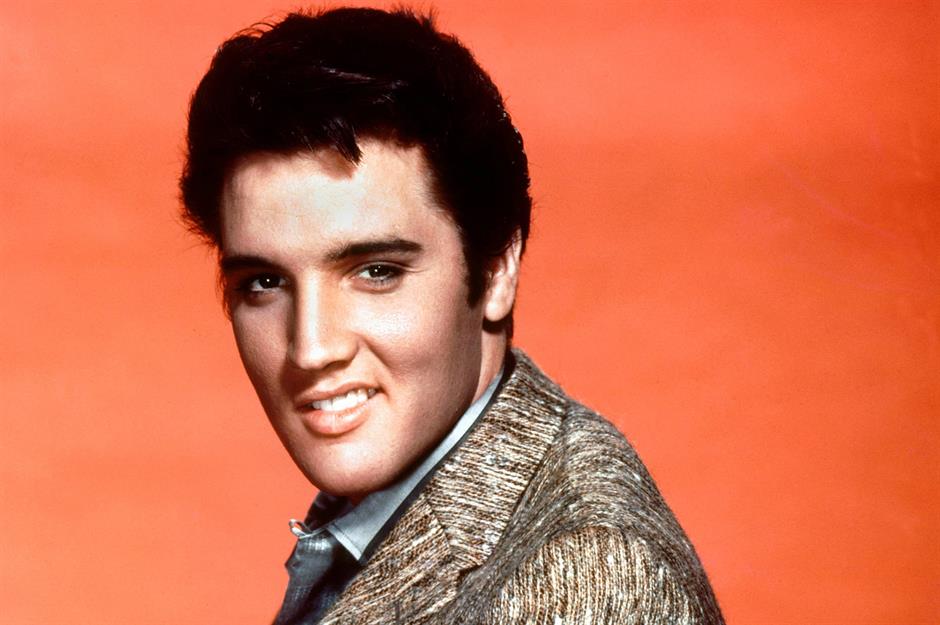
One of the most successful solo music artists of all time, Elvis Presley racked up over one billion record sales, 33 Hollywood movie roles, countless concert performances, and so much more during his glittering career.
Yet despite these incredible achievements, the King of Rock 'n' Roll's net worth was shockingly low when he died in 1977. So why did his fortune pale in comparison to his accomplishments?
Read on to discover how Elvis got rich, what the outrageously extravagant megastar liked to spend his money on, and why he should have been a lot wealthier than he actually was.
All dollar amounts in US dollars
Modest beginnings
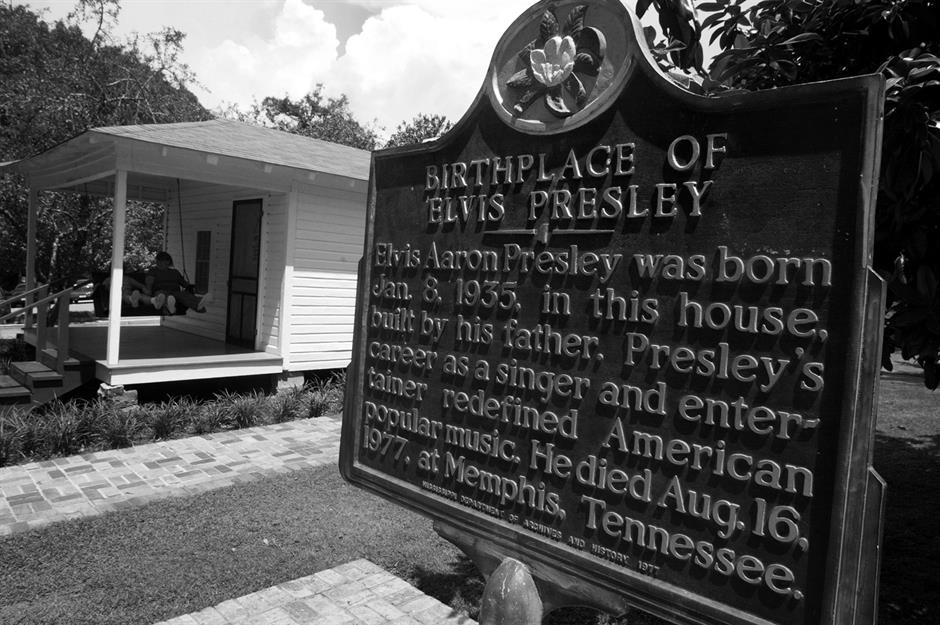
Born in Tupelo, Mississippi on 8 January 1935, Elvis came from nothing and grew up "dirt poor" as he himself put it, with the early years of his childhood playing out against the darkest days of the Great Depression
His father, Vernon, lost the family's two-room shotgun shack in 1938 after he was convicted for altering a cheque. Together with his mother Gladys, Elvis moved in with relatives while Vernon served eight months in prison.
Tough times
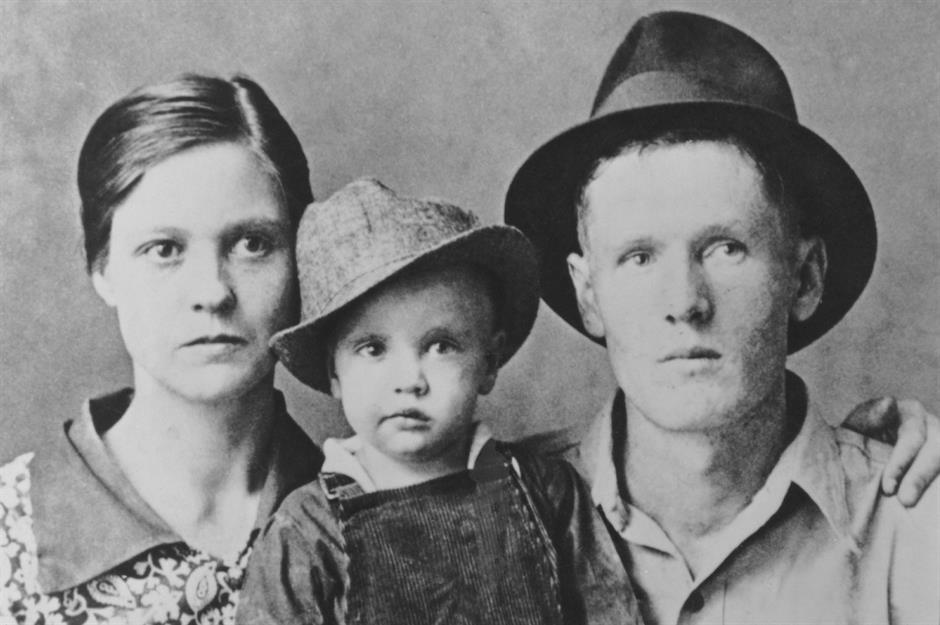
Life was hard for the family. Following his release, Vernon could find only low-paying work as a day labourer and the family moved from rental to rental. At the age of four, Elvis overheard his parents grumbling about paying bills and declared that he would buy them both a Cadillac one day.
It was a promise he would go on to fulfil, with the magnanimous music icon believed to have given away around 200 Cadillacs during his later life.
Sponsored Content
Generous spirit
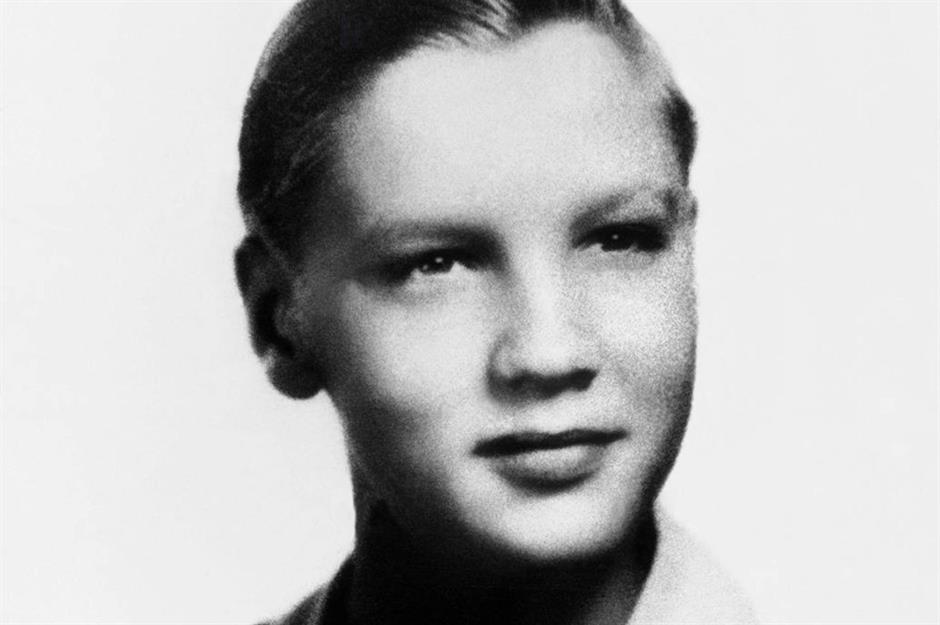
In fact, Elvis was generous to a fault from the beginning.
At the age of nine, he had something of a religious awakening during a church service. Inspired to perform virtuous deeds, the future hitmaker promptly gave away his prized collection of comic books, the only thing of value he owned, distributing them among the kids in his neighbourhood.
First guitar
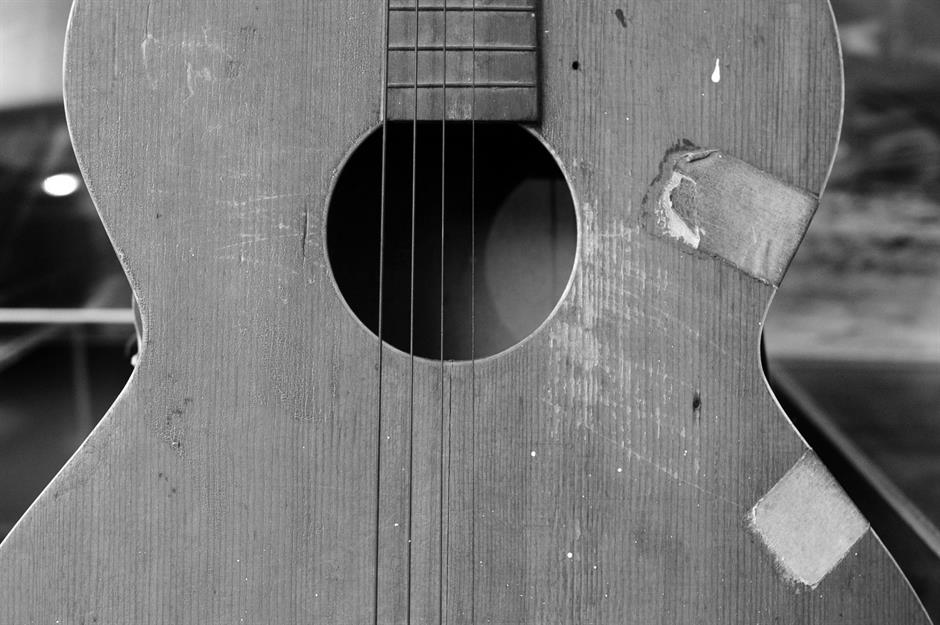
This unbridled generosity was one of Elvis's most admired virtues. However, it did nothing for his bank balance and would later put him at the mercy of unscrupulous people who shamelessly took advantage of his good nature.
With little to his name, the big-hearted youngster was no doubt thrilled to receive a guitar for his 11th birthday, even though he'd initially asked for a bicycle.
Memphis move
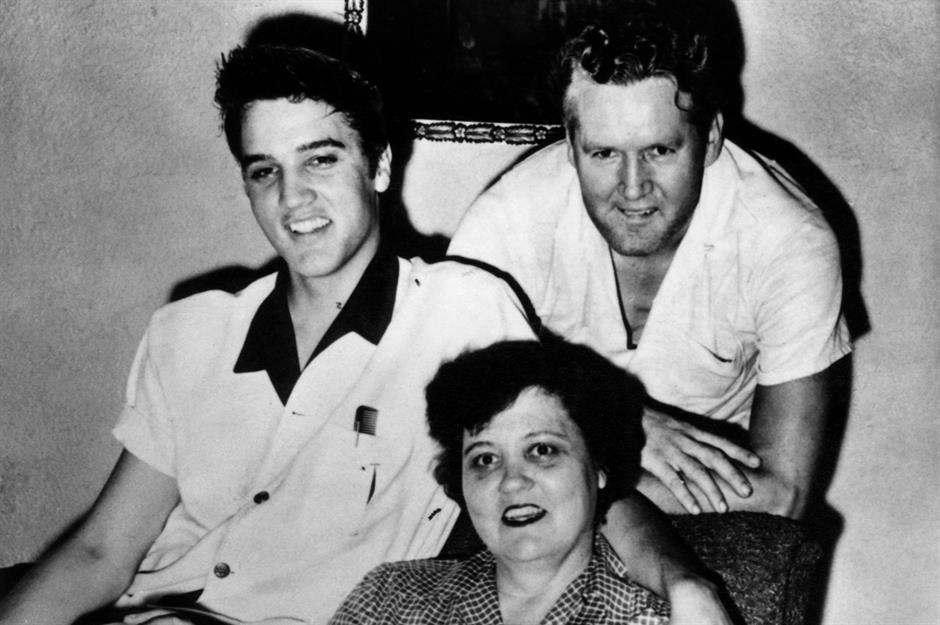
In 1948, the Presleys relocated to a public housing project in Memphis, Tennessee. It was here that the young Elvis, who was virtually inseparable from his guitar by this point, honed his musical talents and developed the inimitable style he became so famous for.
After graduating from high school, where he wowed classmates at the final year show with his one-of-a-kind voice, the promising teen got the ball rolling on his music career.
Sponsored Content
First recording
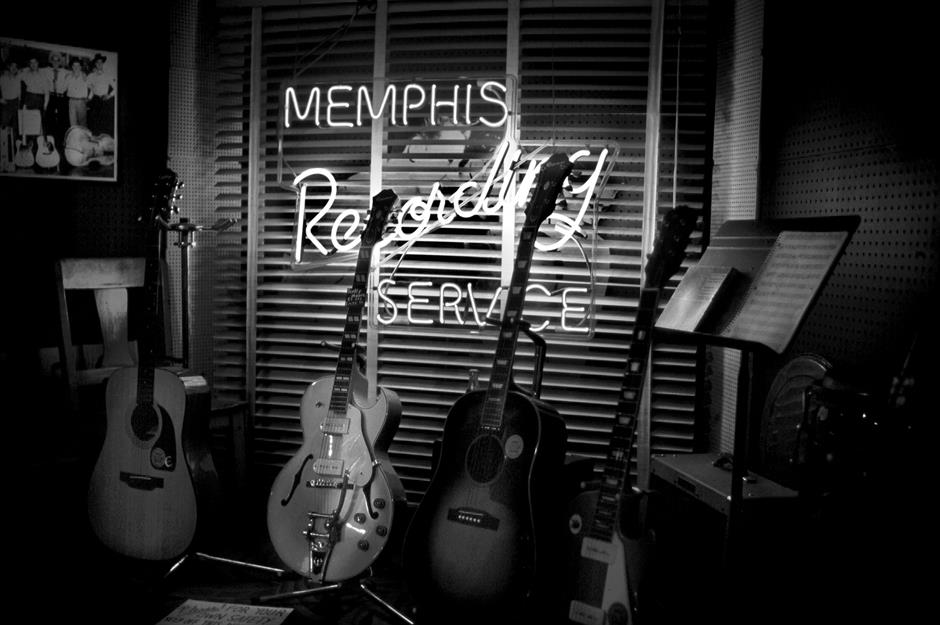
Elvis cut his first record in August 1953, paying Sun Records around $4 (or $47/£36 in today's money) for the privilege. The following January saw him return to the studio and lay down another two tracks.
To make ends meet, the struggling musician got a job as a truck driver, earning just over a dollar an hour.
Early supporter
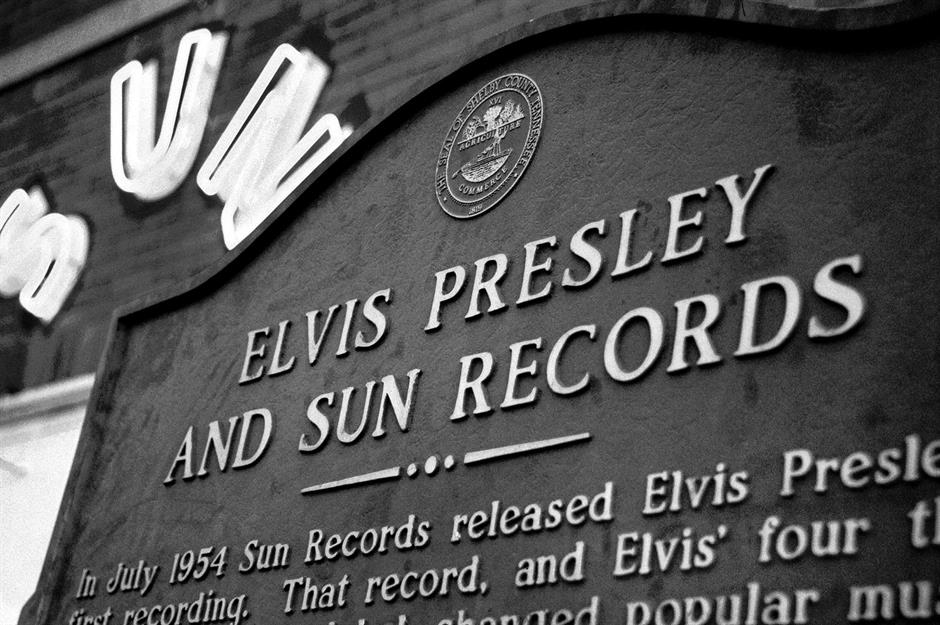
Bowled over by the rookie musician, Marion Keisker, who was the assistant to Sun Records boss Sam Phillips, wouldn't stop raving about Elvis to the label's head honcho.
According to Keisker, Phillips was on the lookout for a white artist who could bring African-American blues and R&B music into the mainstream and was convinced that such a star would make him "a billion dollars".
Perfect package
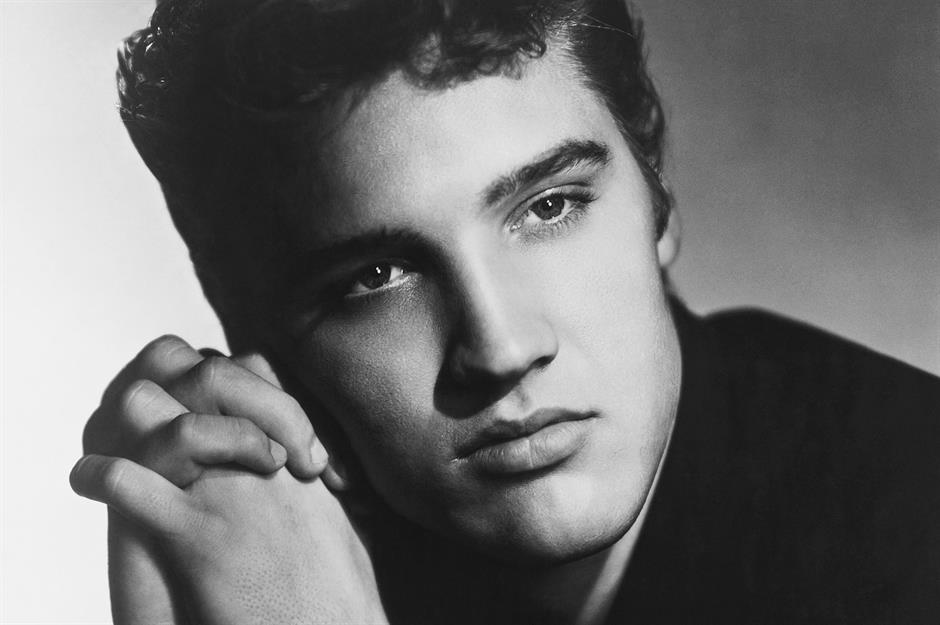
Racism was rife at the time and Sun Records was struggling to market the Black artists on its roster to white audiences. Elvis's intoxicating combination of blues and R&B with a country twist ticked all the boxes.
The up-and-coming star, who boasted magnetic charisma and provocative hip-thrusting dance moves, was recording music for the label in no time.
Sponsored Content
Performing debut
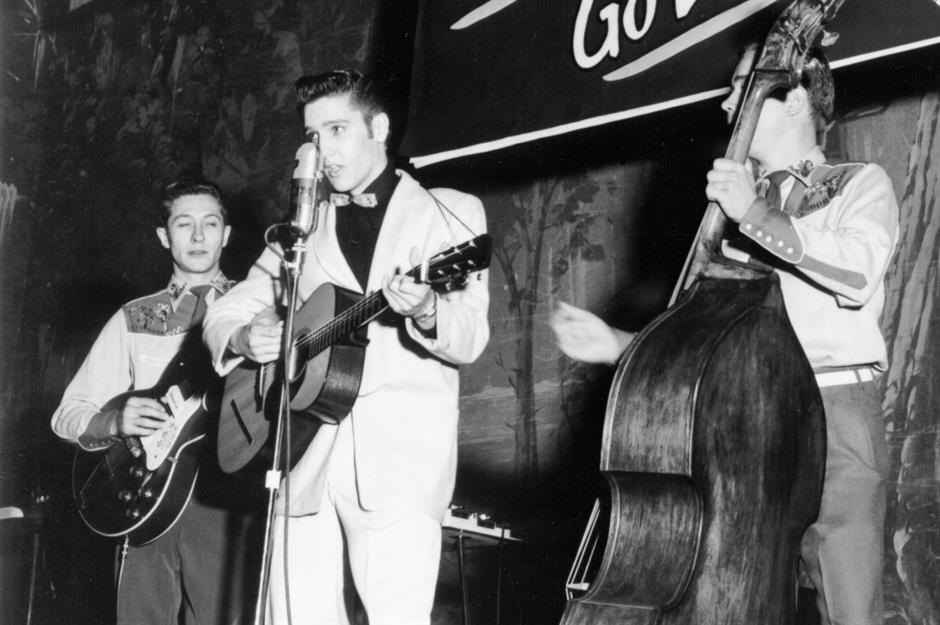
Elvis made his performing debut in July 1954 and bagged a regular gig at the Overton Park Shell theatre in Memphis, where he introduced his signature "rubber legs" dance move.
Audiences went crazy for the mesmerising rocker, and by the end of the year he'd made his debut radio and TV appearances, bought his first car (a 1941 Lincoln), and traded his beat-up guitar for a $175 Martin D-28, the equivalent of $2,000 (£1.5k) in 2024 money.
Southern tours
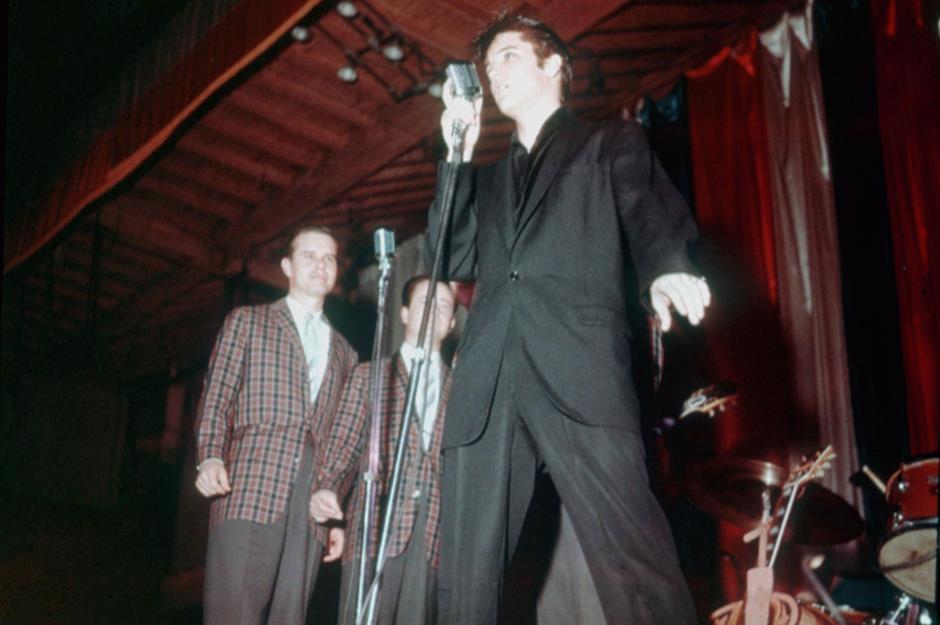
Bookings began to pour in and Elvis embarked on a number of tours around the South. By this point, he'd begun to command decent fees. Together with his backup singers the Jordanaires, Elvis was pulling in around $200 a day, which is a not-too-shabby $2,335 (£1.8k) in today's money.
By February 1955, he was receiving $350 for a matinee performance and also made $850 – or $10,000 (£7.7k) in 2024 money – for a four-day tour with Hank Snow.
First Cadillacs
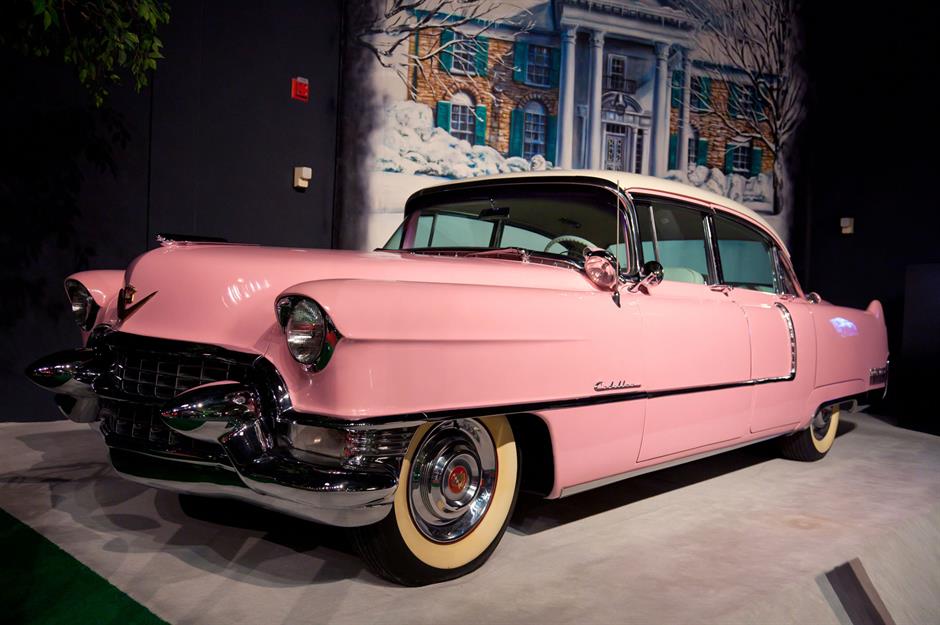
In March 1955, Elvis purchased a pink second-hand 1954 Fleetwood Series 60 Cadillac, the first of many Cadillacs he would go on to own.
After the car caught fire in June of that year, the rocker replaced it with a new 1955 version in blue and had it painted in his favourite pink hue, which was later dubbed "Elvis Rose".
Fulfilling a long-held promise, the car was gifted to his mother, despite the fact she didn't know how to drive.
Sponsored Content
First hit
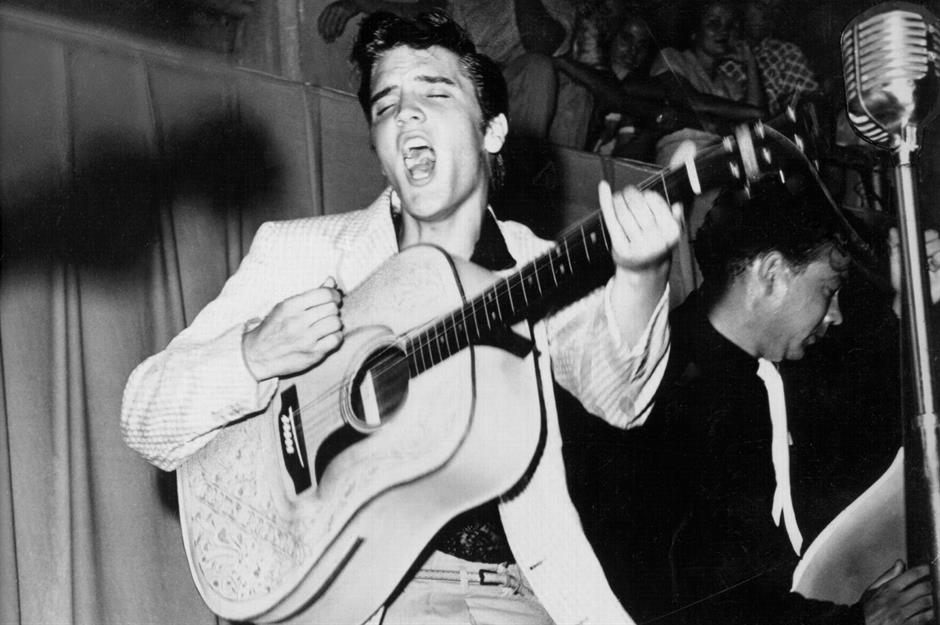
Sun Records released I Forgot to Remember to Forget in August 1955. Elvis's first bona fide hit, the song eventually reached the number one spot on the Billboard country music chart.
The track turned out to be the rising star's last recording for Sun Records. With the buzz surrounding Elvis reaching fever pitch, major record companies were scrambling to sign the red-hot artist.
Colonel Parker
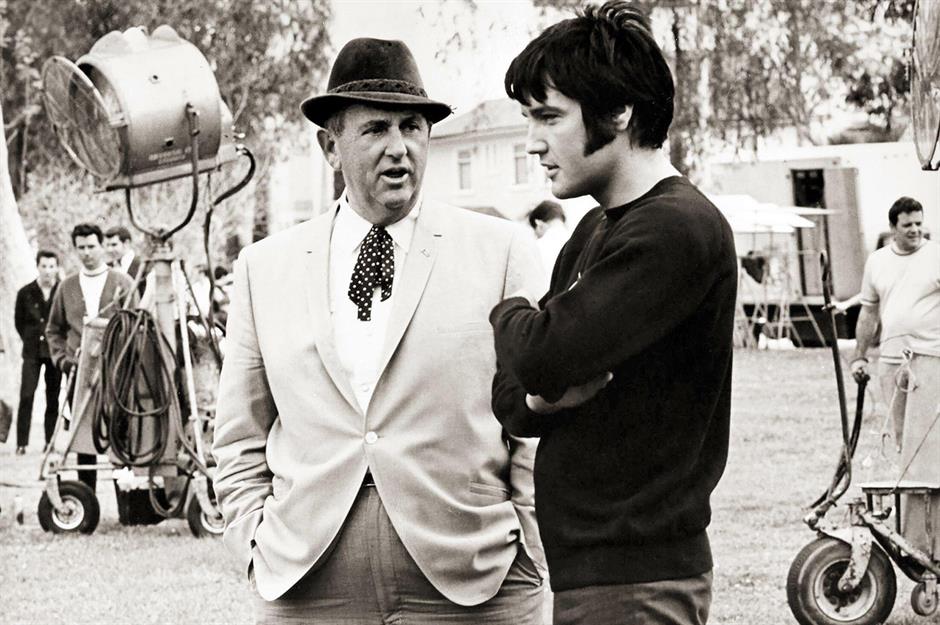
A month after the song was released, Elvis's then-manager Tom Neal called upon the services of Colonel Tom Parker, a promoter he considered to be one of the best in the business.
The Colonel was swiftly hired as the burgeoning hitmaker's special adviser. Eager to land Elvis the most lucrative contract possible, Parker negotiated hard with the pack of interested big-name labels, which included RCA Victor.
Record contract
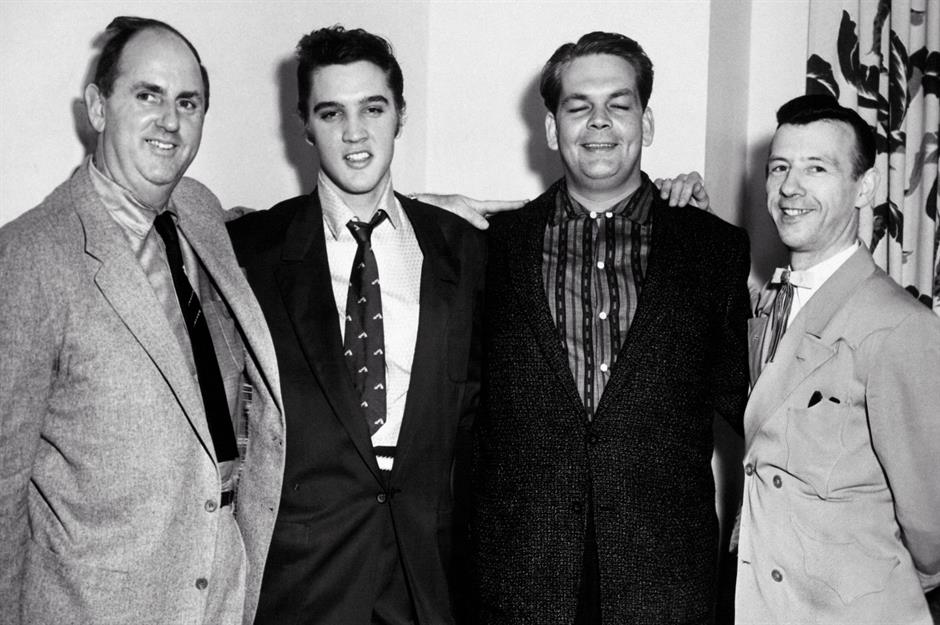
In November 1955, Sam Phillips finally caved in to the Colonel's demands and agreed to pay Sun Records a whopping $35,000 for Elvis's contract. At the time, this was the largest-ever sum paid for a music artist. The record-breaking figure translates to around $412,000 (£318k) in today's money.
Elvis also received a bonus for back royalties, which amounted to $5,000 (or $59k/£46k today), marking his first major payday.
Sponsored Content
National TV debut
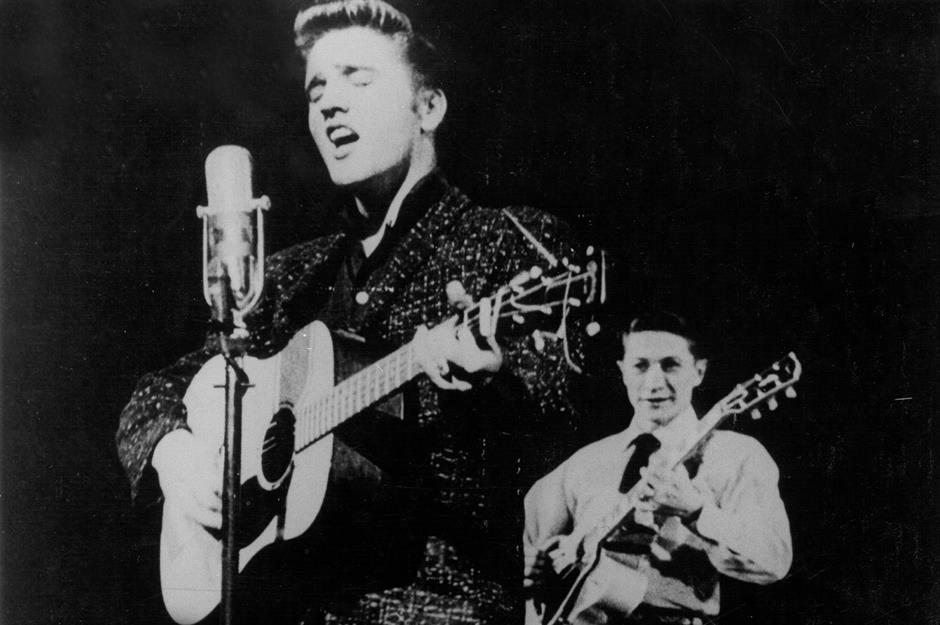
RCA's sizzling new signing got to work recording material for the label in early January 1956, laying down Heartbreak Hotel during his first studio session.
The track was released on 27 January 1956 and Elvis made his national TV debut the next day on CBS's Stage Show. Transfixing the youth of America, the rock 'n' roller appeared on the show six times over a two-month period, earning a total of $8,000, which is around $93,000 (£72k) in 2024 money.
Hotshot manager
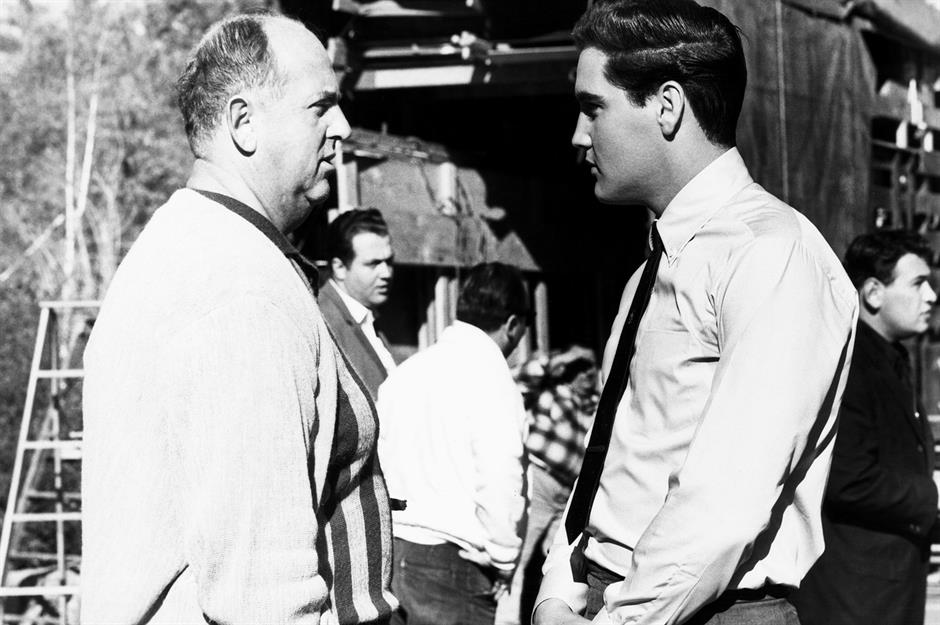
In March 1956, Elvis ditched Tom Neal and appointed the Colonel as his manager, with Parker taking a hefty 25% cut of Presley's earnings.
Two months earlier, the Colonel had signed Elvis with the William Morris Agency, which went on to exclusively represent the star as a touring artist and actor in exchange for a 10% commission.
Rising fame
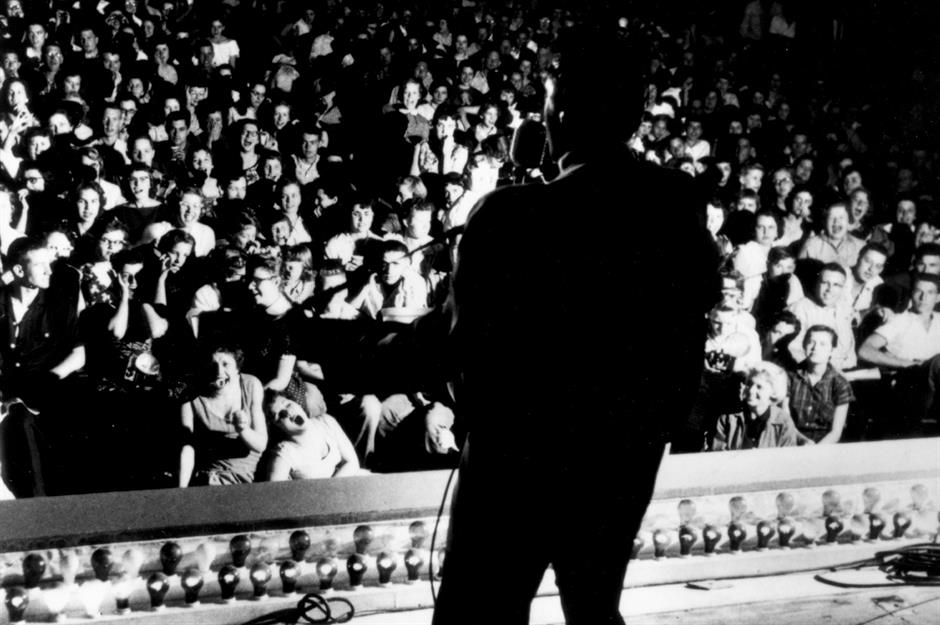
Elvis's meteoric rise was at warp speed by this point. March 1956 saw the skyrocketing star release his self-titled debut album, and he also had his first Hollywood screen test.
The Colonel had shrewdly recognised his protege's movie star potential and knew the big studios would compete to sign him given his enormous appeal to the nation's teenagers.
Sponsored Content
Screen star
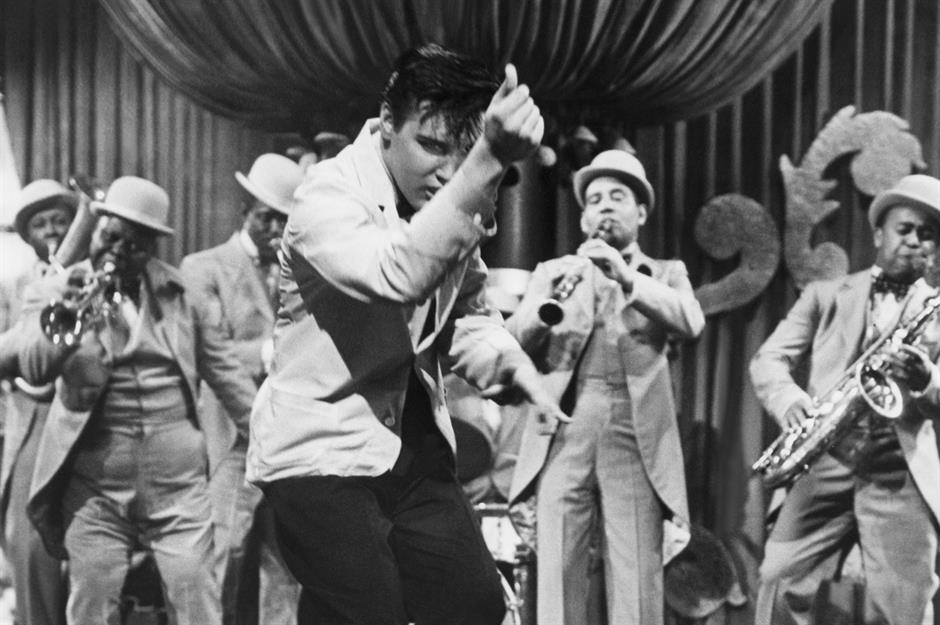
The screen test was well-received and Elvis signed his first motion picture contract with Paramount in April 1956.
The deal with Paramount resulted in two films, 1957's Loving You and 1958's King Creole, for which Elvis was paid a total of $165,000. That's $1.9 million (£1.5m) in today's money – but significantly less when you subtract his manager's cut and agent's fees, of course.
The ratings king
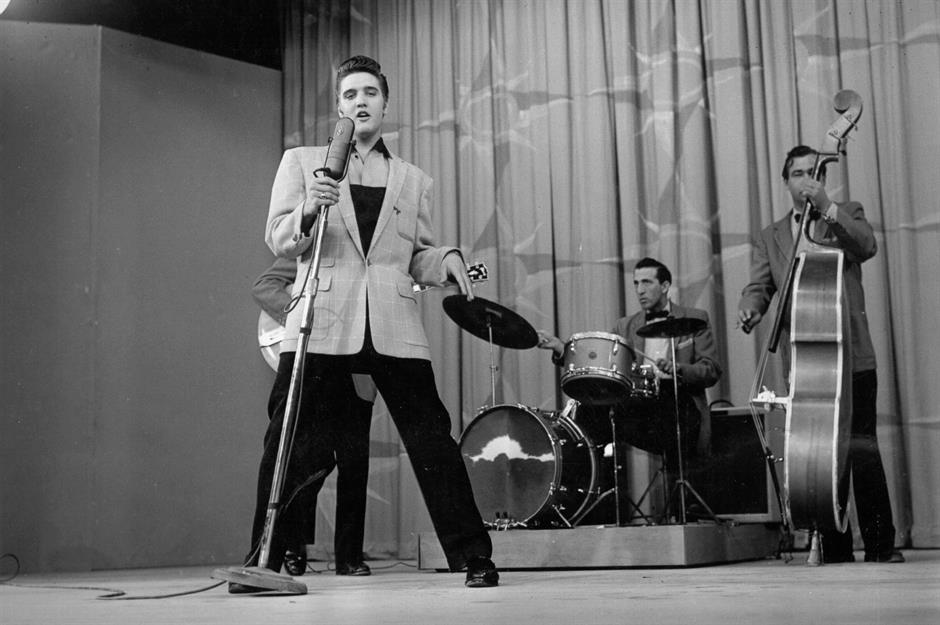
With his star in the ascent, Elvis performed on The Milton Berle Show in April 1956.
The rocker appeared on the popular TV show again the following month, with rating-smashing appearances on The Steve Allen Show and The Ed Sullivan Show following, with the latter reporting an incredible 60 million viewers for his performance.
All in all, Elvis earned a bumper $59,900 for these appearances, which equates to $692,000 (£534k) today.
Topping the charts
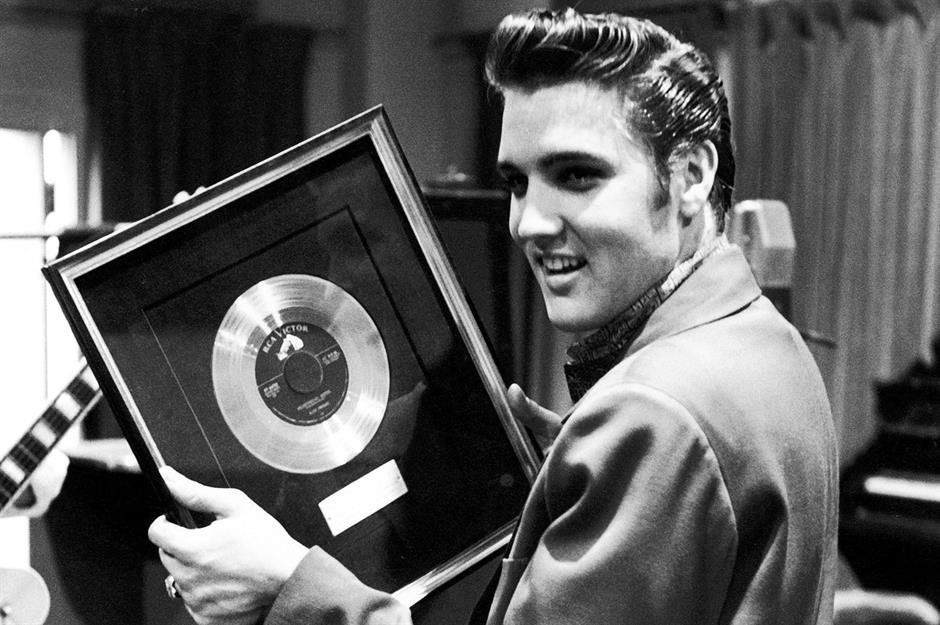
On 6 May 1956, Heartbreak Hotel hit the number one spot on the precursor to the Billboard Hot 100 and Elvis's debut album also rose to the top position.
The single shifted more than a million copies that year, making it the star's first RIAA-certified gold record, while the album flew off the shelves. In fact, Elvis Presley would eventually become the first rock 'n' roll album to surpass a million sales.
Despite this, Elvis received just 11% of the money made from album sales.
Sponsored Content
Movie debut
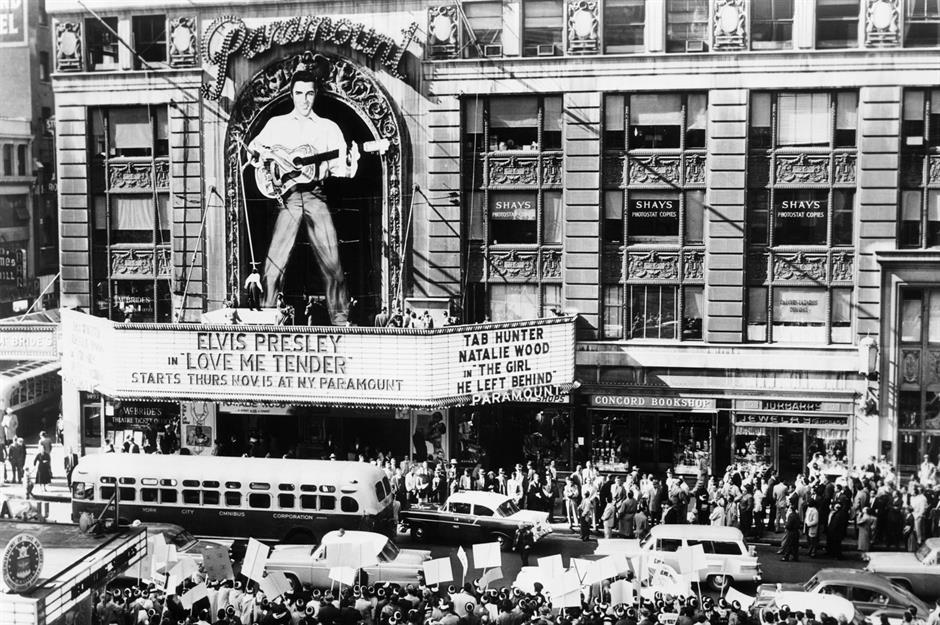
Nevertheless, his riches were piling up fast. In August 1956, the Colonel clinched a deal with 20th Century Fox, with the studio agreeing to produce Elvis's debut movie Love Me Tender, which was named after his fifth number one single that year.
Elvis received $100,000 for the film, the equivalent of $1.2 million (£926k) today, which was released in November 1956.
Raking it in
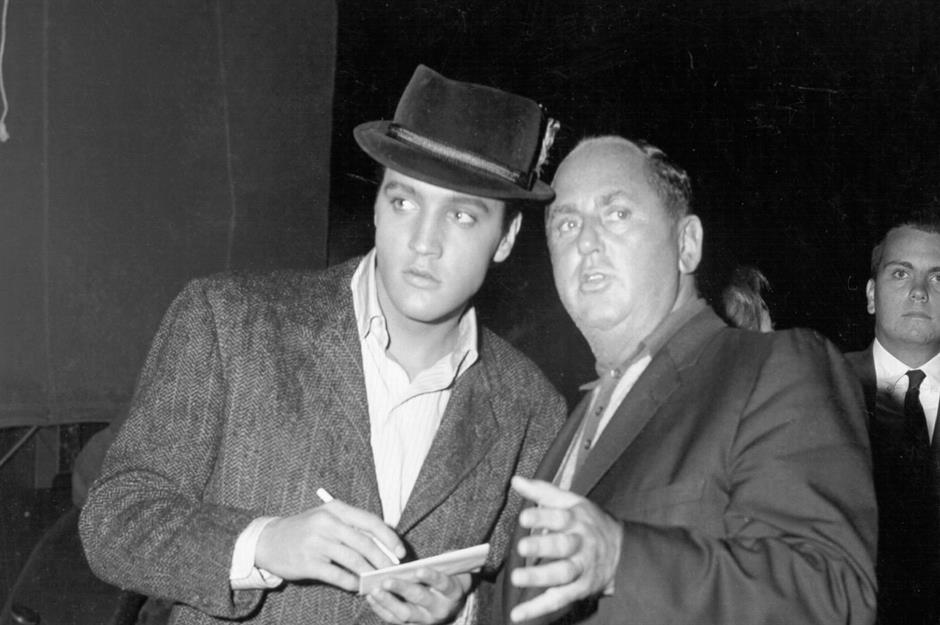
On top of his millions of single and album sales – not to mention the movie deals, concerts, and TV appearance fees – Elvis made an absolute killing in 1956 from merchandise.
Ever adept at extracting as much money as possible from his star, Parker had licenced the rocker's name and image to 18 companies, with 30 products on sale by September 1956.
Incredibly, Parker even came up with a way of making money from people who loathed the star, launching a range of I Hate Elvis badges.
Money-spinning merch
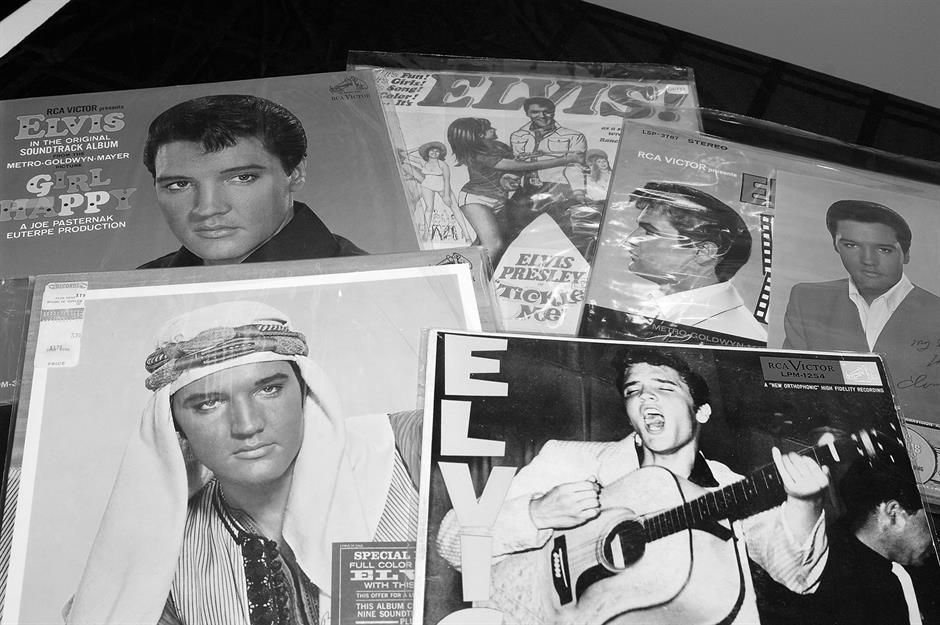
By the end of 1956, sales of Elvis merch had grossed a jaw-dropping $22 million (or $254m/£196m today) according to the Wall Street Journal.
Elvis received just a fraction of that figure but still made a fortune, and was declared a millionaire by Variety before the year was out.
Sponsored Content
Lavish spending
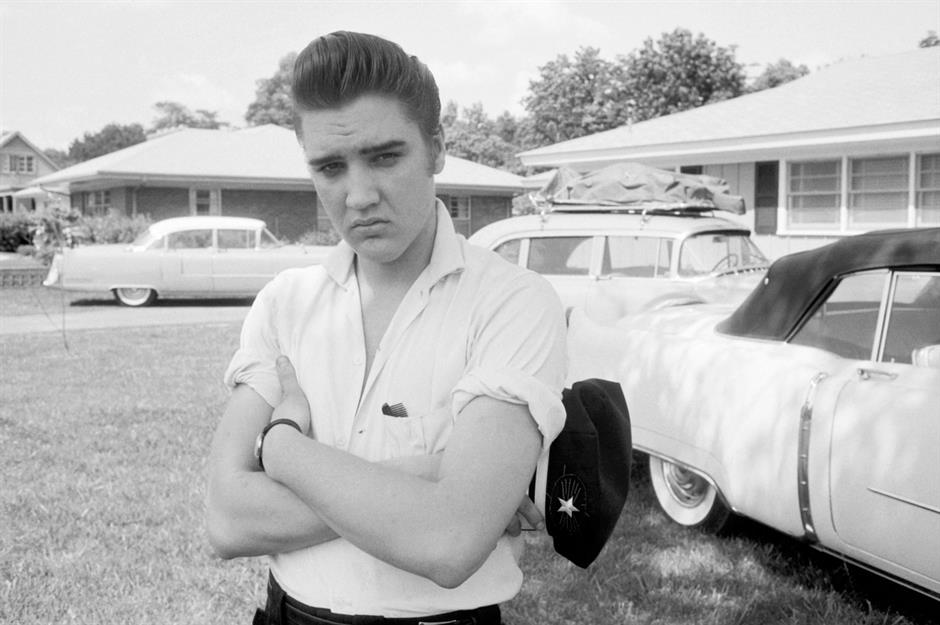
Having attained global stardom and a bulging bank balance to match, Elvis started spending like a superstar, snapping up Cadillacs, jewellery, and prime real estate.
In early 1956, the rocker purchased a four-bedroom, ranch-style house in an affluent suburb of Memphis for $40,000 ($462k/£356k today), using royalties he'd received from Heartbreak Hotel.
Graceland mansion
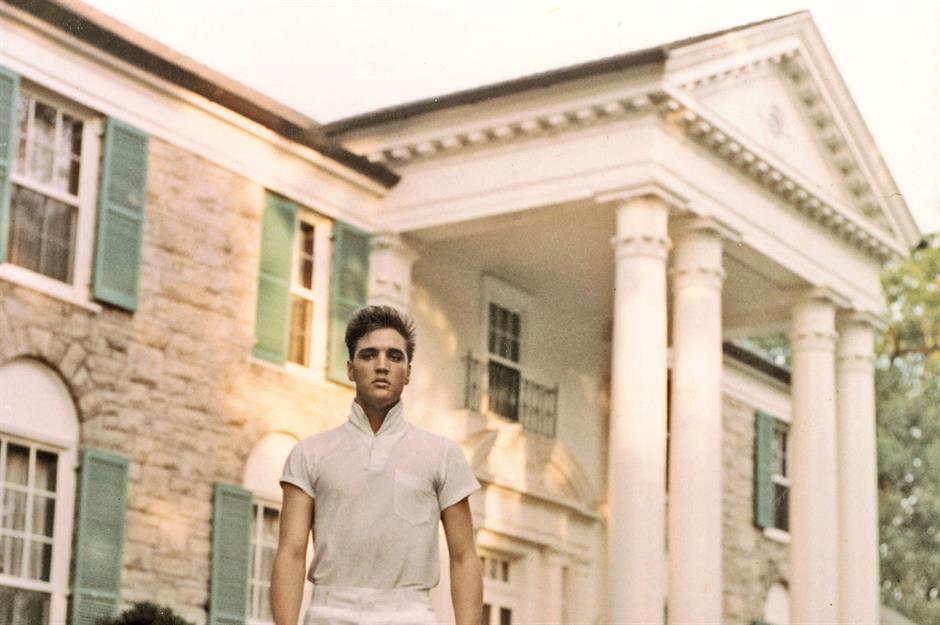
In 1957, Elvis drastically upgraded to Graceland, a 23-room Colonial Revival mansion in Memphis. He paid $102,500 ($1.1m/£848k today) for the grand pile.
The free-spending star then dropped more than $500,000, the equivalent of $5.6 million (£4.3m) today, on remodelling the property to his liking. The sprawling home would serve as the King's primary residence until his death in 1977.
While Elvis's profile and net worth continued to go from strength to strength, his career was interrupted by military service in 1958.
Movie career
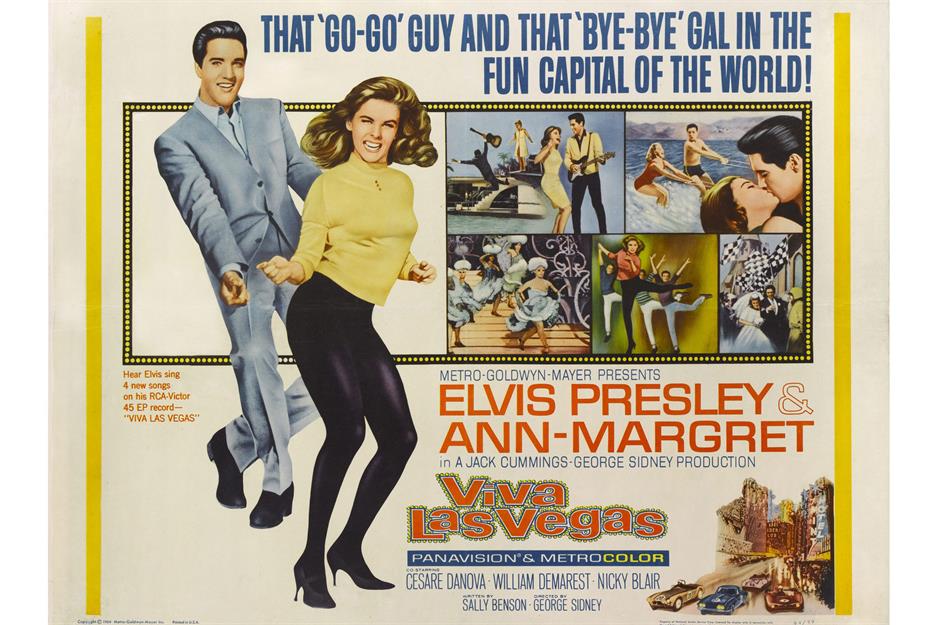
Following his release from the US Army in March 1960, Elvis, who was earning the equivalent in today's money of $55 million (£42m) a year, turned his attention to making movies and soundtrack albums.
They were widely panned by the critics but proved hugely popular with the public and managed to gross millions. Yet again, however, Elvis's share of the pie was whittled down considerably due to his manager, agent, and the IRS all taking ample chunks of the cash first.
Sponsored Content
Parker's greed
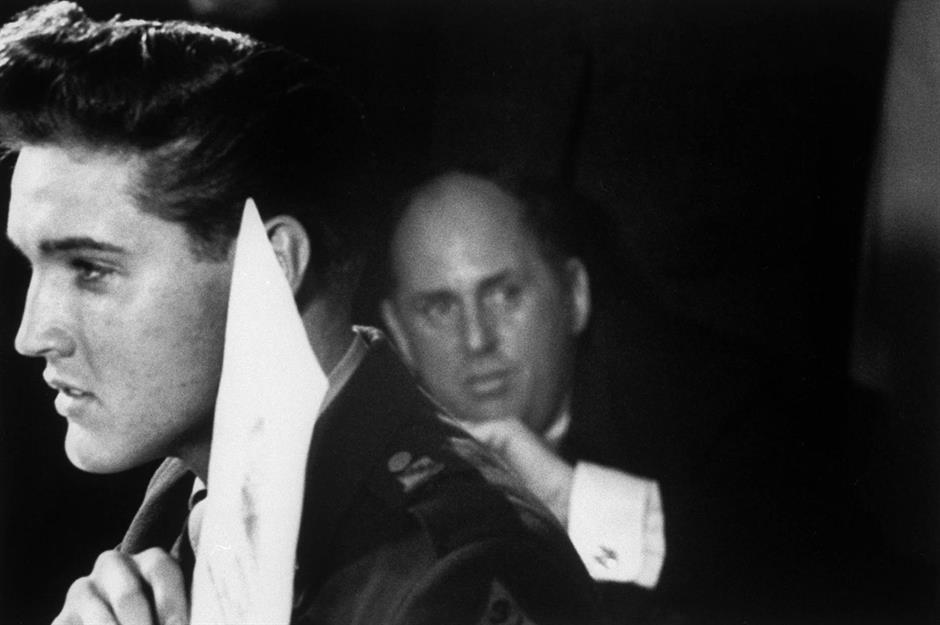
The Colonel hiked up his fee to a punishing 50% of Elvis's earnings in 1967. With the William Morris Agency taking another 10% and taxes eating up a significant proportion, the star was left with barely 20% of the total.
While Parker did manage to orchestrate some great deals for Presley over the years, the svengali mismanaged Elvis's career in various ways.
Devil in disguise
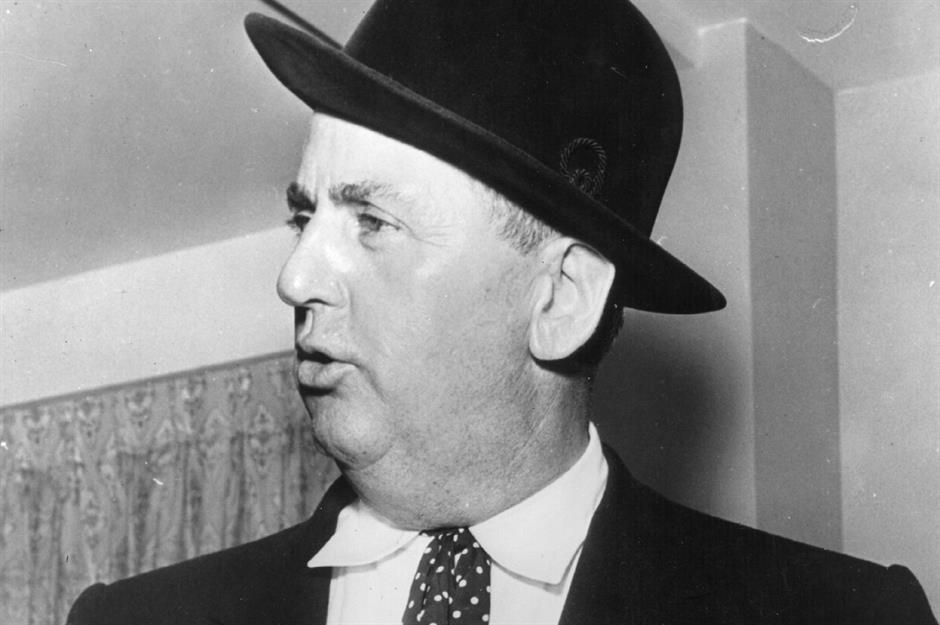
And Parker wasn't who he seemed either. Despite claiming he was from West Virginia, Colonel Tom was actually born in the Netherlands, and his birth name was Andreas Cornelis van Kuijk.
Allegations abounded that he'd been involved in a murder in his home country and had fled to America as an illegal immigrant in order to escape justice. After serving in the US Army for three years, van Kujik assumed the name of his former commanding officer, Thomas Parker, in a bid to conceal his real identity.
Overseas ban
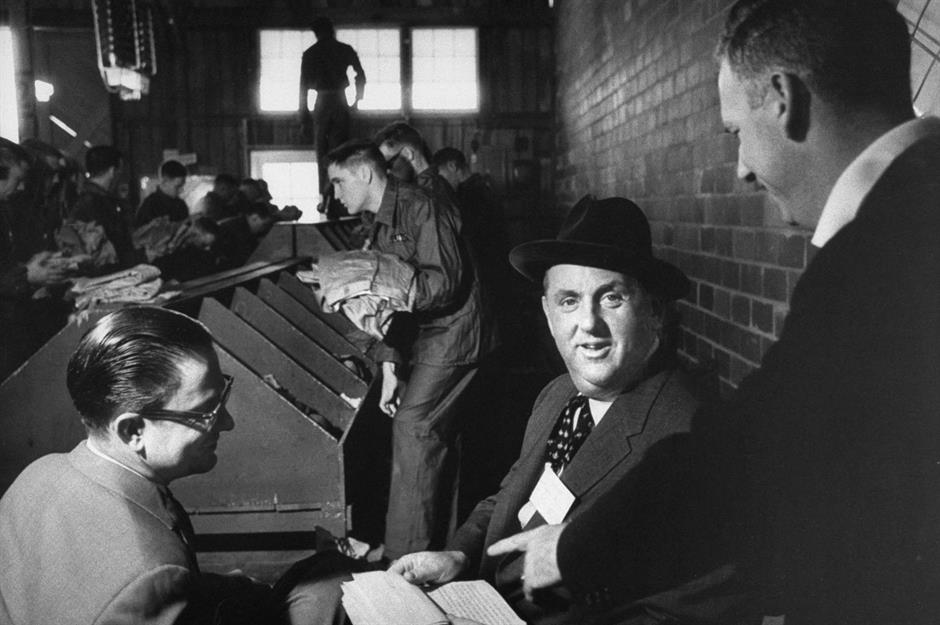
The Colonel's problematic immigration status had a negative impact on Elvis' career. Lacking a US passport, Parker is said to have feared his secret would be revealed and that he wouldn't be allowed back into the country if he ever ventured abroad.
As a consequence, Elvis was barred from touring overseas, which prevented the star from making colossal sums of money around the world. The singer only performed three times outside of the US, making a trio of appearances in Canada in 1957.
Sponsored Content
Parker's blunders
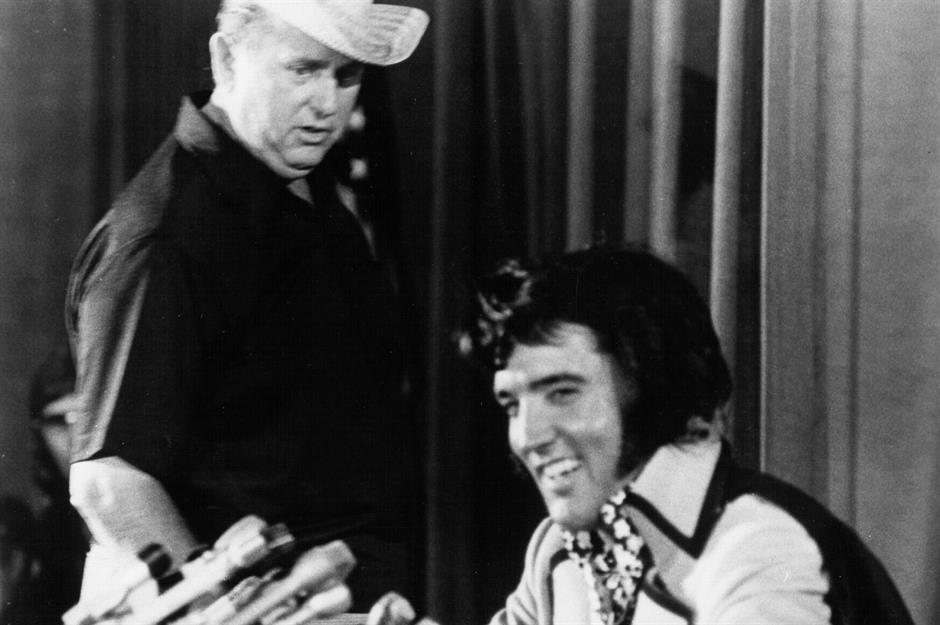
Parker is also said to have turned down starring roles for Elvis in iconic movies such as Cat on a Hot Tin Roof, Midnight Cowboy, and A Star Is Born, instead signing him up for parts in substandard films that would make a fast buck.
Although the Colonel managed to get Elvis a one-third writing credit for the songs he recorded, the blundering manager failed to register his client with the relevant performance rights organisations, meaning he missed out on millions of dollars in royalties.
Property portfolio
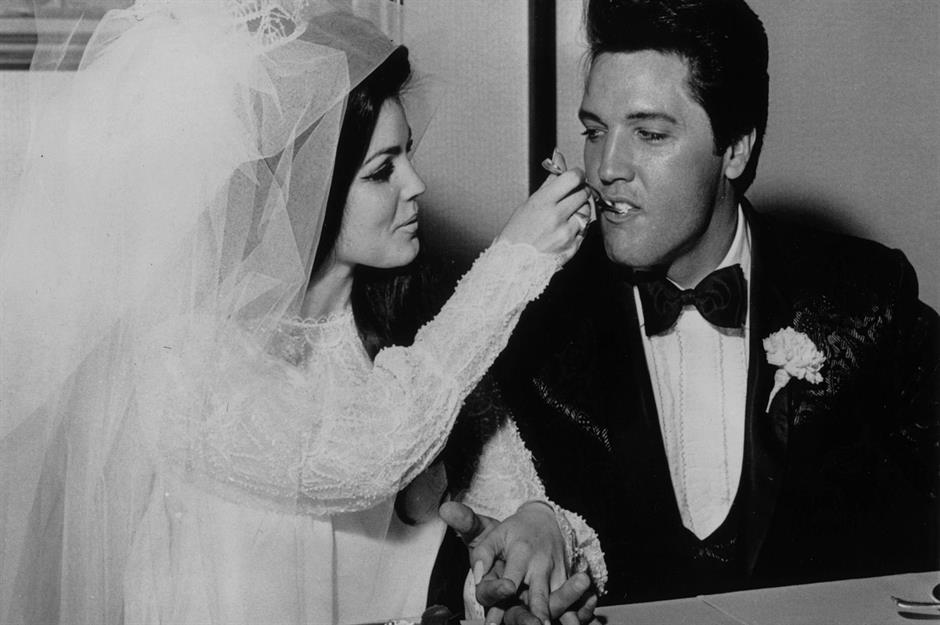
Regardless of Parker's mismanagement, however, Elvis was enjoying splashing his cash.
After tying the knot with Priscilla Beaulieu in 1967, the rock 'n' roll legend went on a real estate spending spree. His purchases included a Beverly Hills mansion worth $3.9 million (£3m) in today's money, and a Mississippi ranch that would cost the equivalent of $4.3 million (£3.3m) in 2024. He also invested in stunning properties in Palm Springs and LA's Holmby Hills.
Big comeback
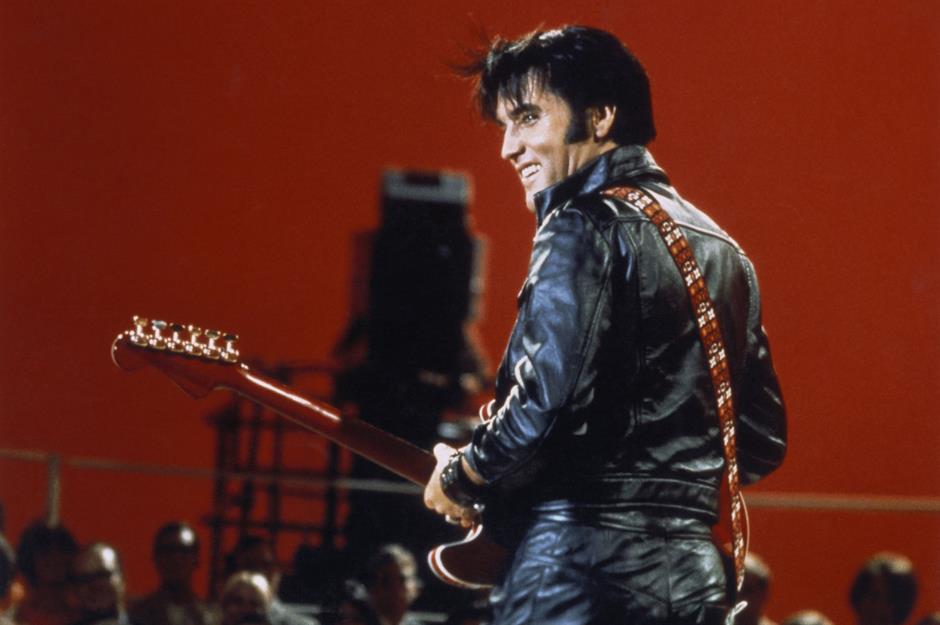
The star rekindled his music career in 1968 with the sensational TV Comeback Special on NBC, in a deal worth $11.6 million (£9m) in today's money.
However, he was a different man to the musician America had first fallen in love with. Elvis had developed a serious addiction to prescription drugs, including potent opiates, amphetamines, and barbiturates, and was also severely overweight. At the peak of his eating disorder, he was reportedly consuming up to 20,000 calories a day.
Sponsored Content
Drug addiction
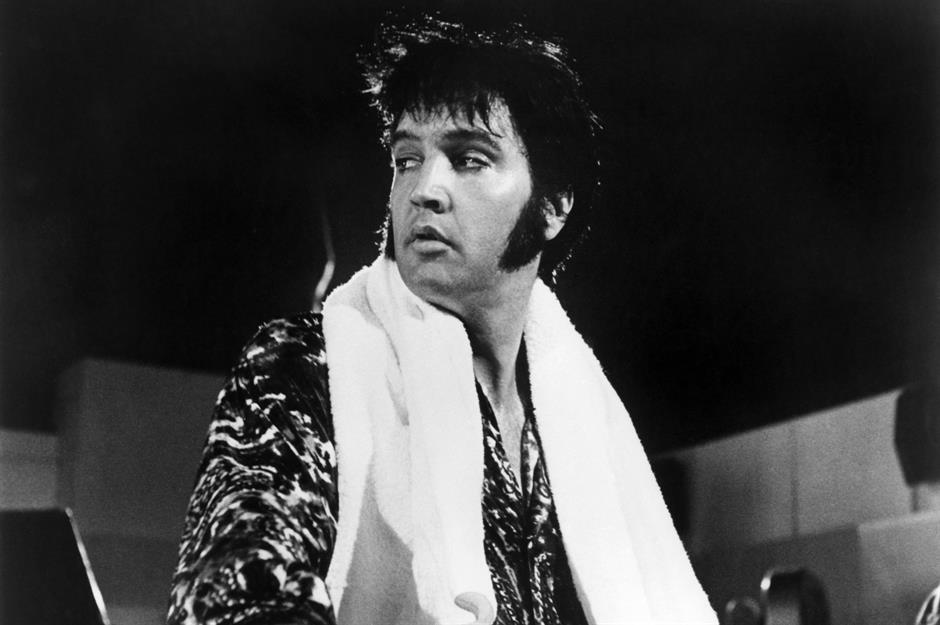
By 1970, the troubled celebrity is alleged to have been spending over $500,000 a year on prescription medication and fees for more than 100 doctors, which is an extraordinary $4 million (£3.1m) in 2024 money.
Towards the end of Elvis's life, his annual expenditure on narcotics is said to have exceeded a million dollars.
Elvis's extravagance
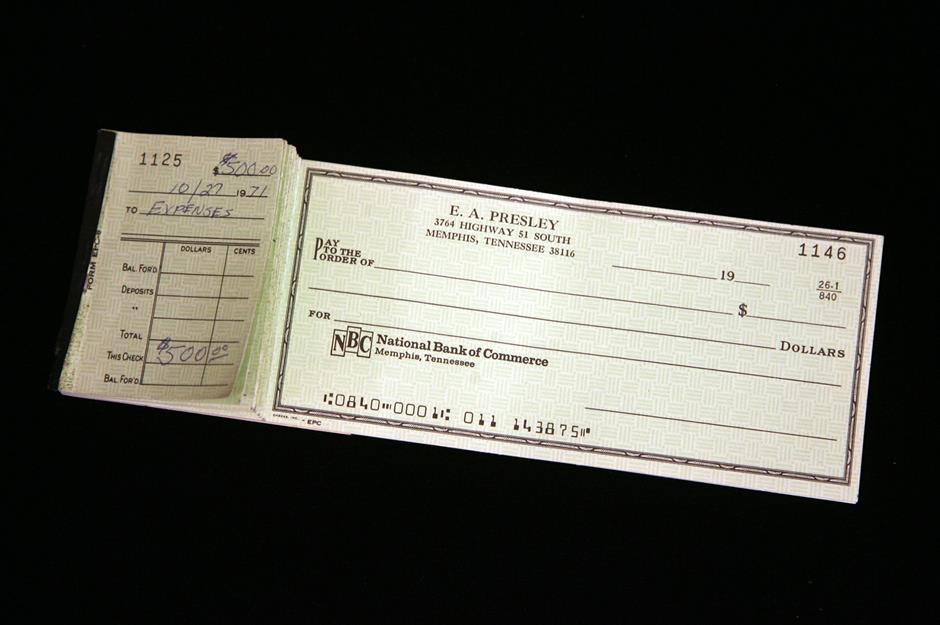
Matters came to a head at Christmas 1970. Priscilla and her father-in-law Vernon called Elvis out for his spendthrift ways after he splurged the equivalent of $833,000 (£642k) today on 10 Mercedes-Benz cars and 32 guns for his friends, as well as buying a house for another acquaintance.
However, their pleas were ignored and the superstar continued his over-the-top spending splurges.
Uncontrollable spending
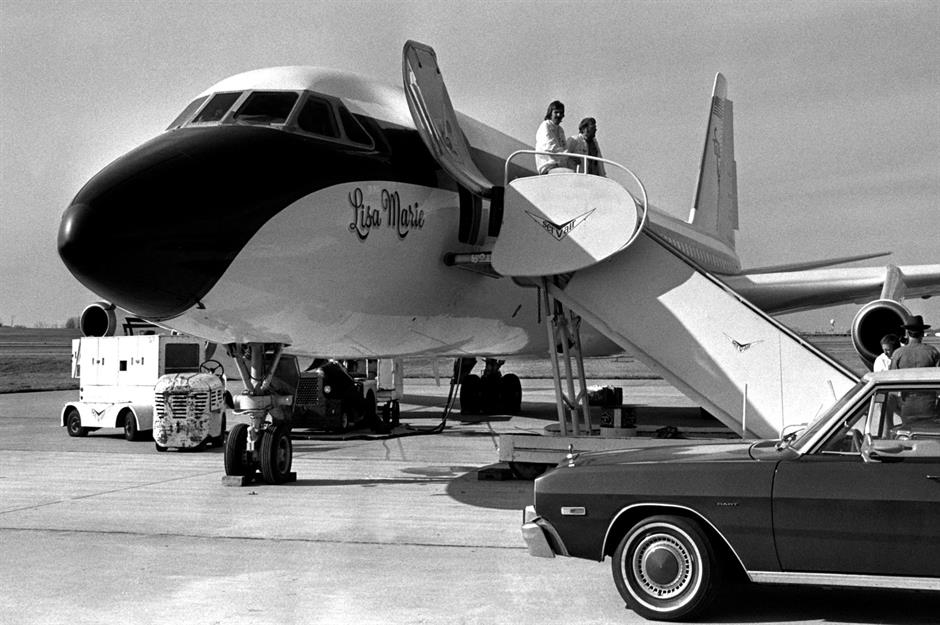
Family, friends, and even complete strangers were treated to houses, luxury cars, Harley-Davidson motorbikes, mink coats, and other expensive gifts. Elvis was also a big supporter of various charities, making generous donations to a range of worthy causes.
He was partial to spending on himself too, splashing out on everything from jewellery and speedboats to racehorses and private jets. In fact, he spent the equivalent of $5.1 million (£3.9m) in today's money on one such jet and named it after his daughter Lisa Marie Presley, who was born in 1968.
Sponsored Content
Costly divorce
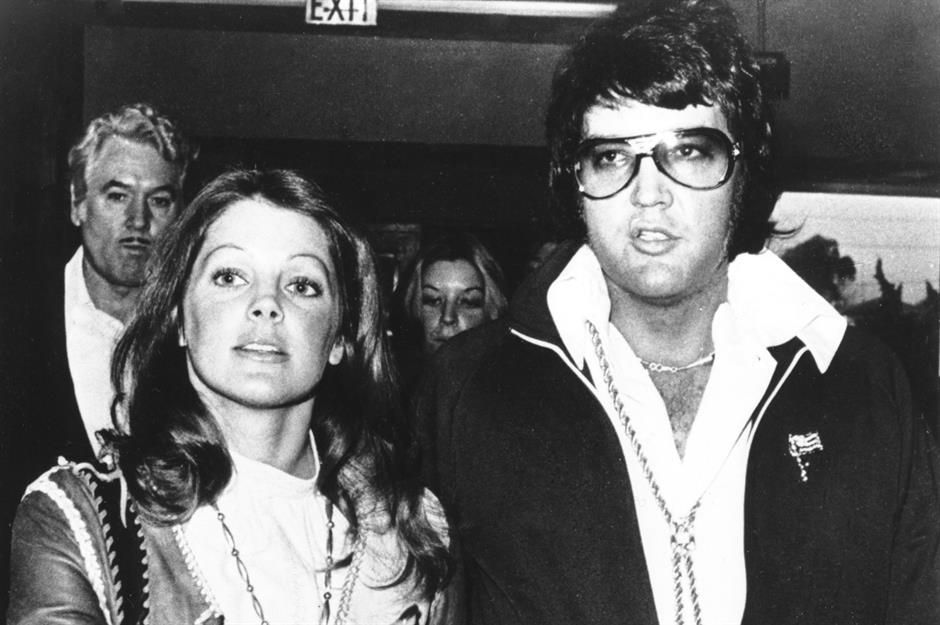
Elvis and Priscilla divorced in 1973. The King paid his ex $750,000 in cash, which works out at $5.3 million (£4.1m) today. She also received thousands of dollars each month in child support, as well as a 5% stake in two music publishing companies.
The King's father also proved to be costly. Elvis paid Vernon an allowance of $72,500 a year – over half a million dollars today – and covered the cost of his father's $250,000 divorce from his second wife. That cash gift alone translates to $1.7 million (£1.3m) in 2024 money.
Memphis Mafia
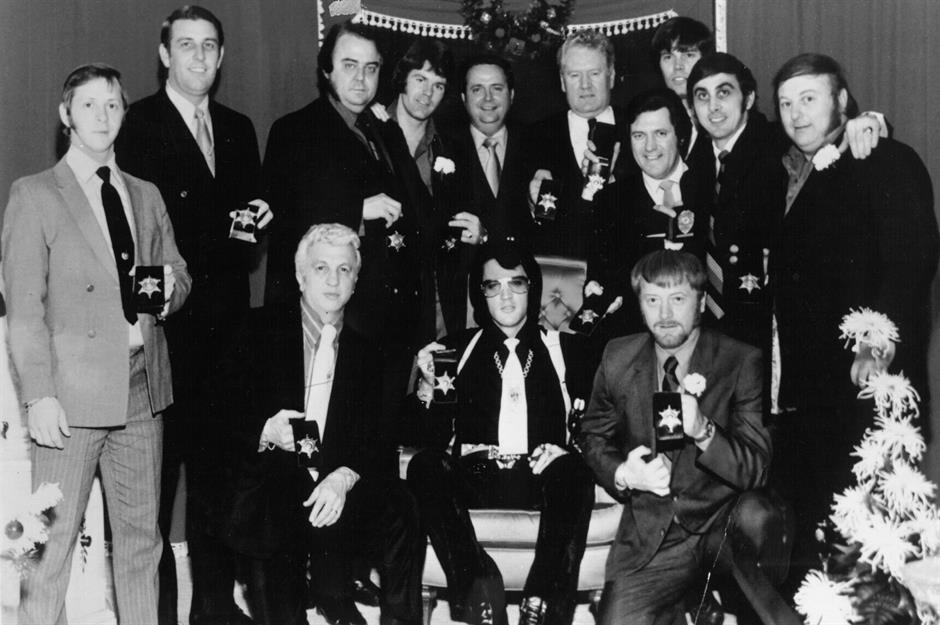
Elvis's entourage of hangers-on, the so-called "Memphis Mafia", also lived the high life at his expense.
In 1973, Colonel Parker sold the master tapes for 700 of Presley's songs to RCA for $5.4 million. That's $38.2 million (£29.5m) today and considerably less than what they were actually worth.
Once again, Elvis got the raw end of the deal – and that wasn't the only concern he had. Around this time, the rock 'n' roll legend's health started to go downhill fast and he overdosed on barbiturates on two occasions that very same year.
Declining health
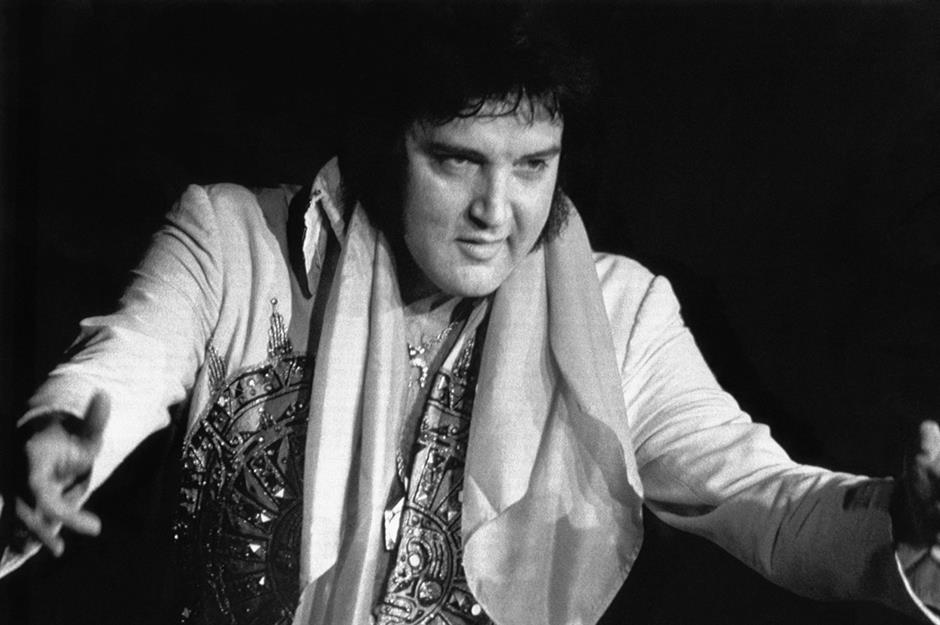
Despite his worsening health issues, he continued to churn out records and perform to sold-out venues, although his performances both on stage and in the studio were becoming patchy.
On 16 August 1977, Elvis was due to leave Graceland to begin a new tour. But he never left his beloved mansion.
Sponsored Content
Tragic death
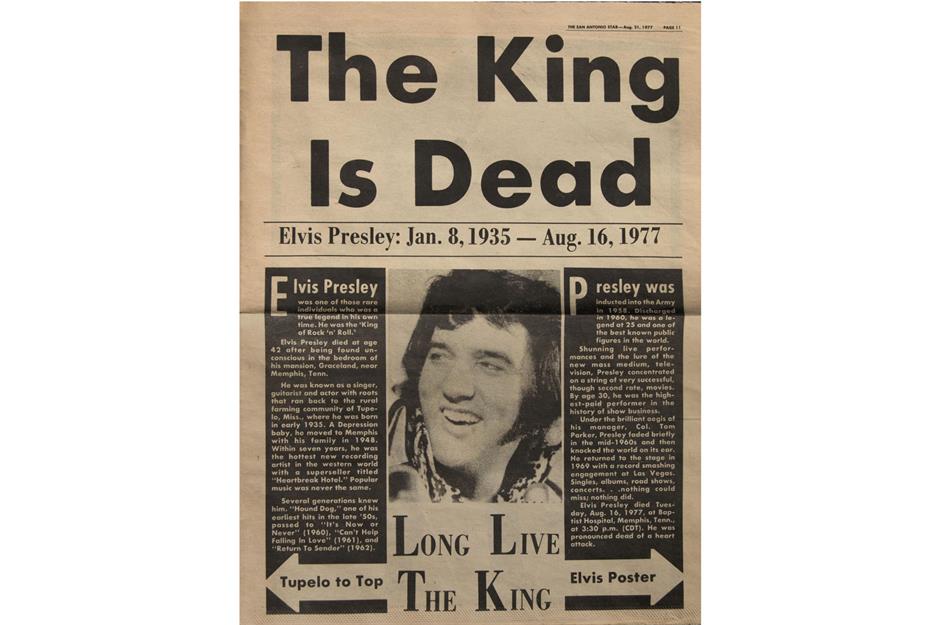
The original rock star succumbed to a fatal heart attack while using the bathroom, with reports suggesting his death was caused by his heavy drug intake. He was just 42 years old at the time.
Elvis is estimated to have earned anywhere between $100 million and a billion dollars during his lifetime, which is more than $537 million (£414m) and $5.4 billion (£4.2bn) respectively today.
Cash-poor estate
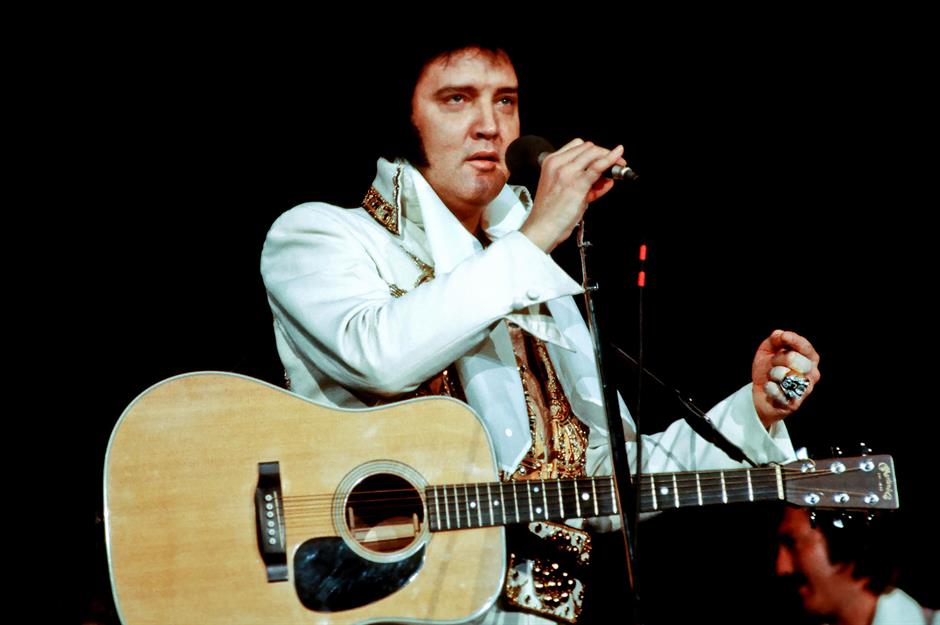
Yet the King left behind what Forbes describes as a "cash-poor" estate worth only $5 million – $27 million (£21m) in 2024 money – and with a stack of debt too.
Elvis's extraordinary extravagance and overflowing generosity, coupled with the influence of Parker and his various hangers-on, had massively eroded the megastar's fortune.
However, his legacy lives on. Elvis Presley remains one of the most famous entertainers who ever lived, with new generations of fans discovering his music while his estate continues to rake in millions today.
From one icon to another: now find out how Dolly Parton makes and spends her money
Comments
Be the first to comment
Do you want to comment on this article? You need to be signed in for this feature